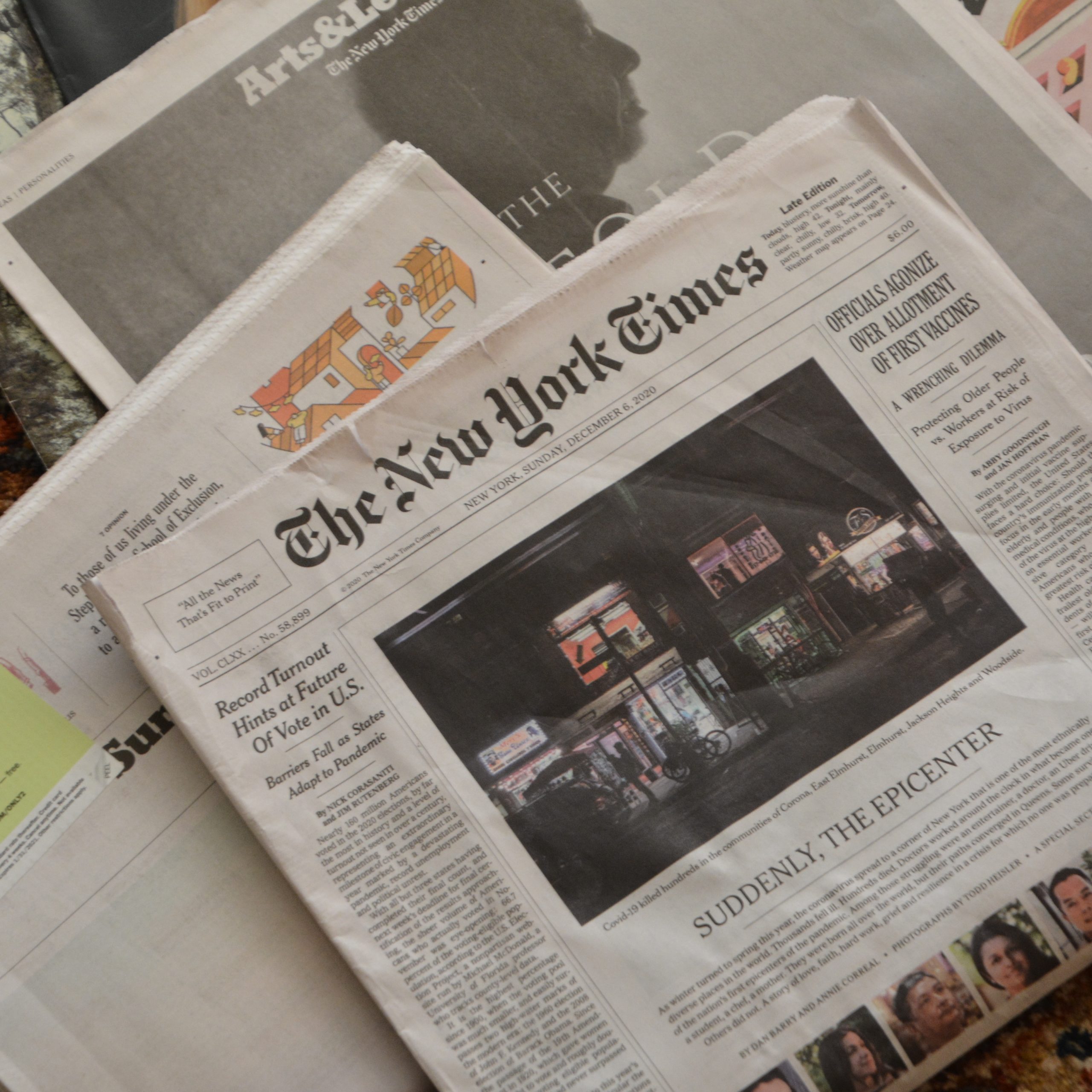What can be more delightful than getting up on a Sunday morning and going to the local store to buy the Sunday edition of The New York Times? Oops! I almost forgot. No one buys the newspapers anymore. All the news that’s fit to print also fits right on your smart phone. All you need to do is to roll over in bed and push a few buttons and voila! There it all is.
But despite the convenience of reading the newspaper by smart phone, I can’t help but think that we are all going down a mysterious, enticing and, in the final analysis, a malevolent worm hole. Marshal McLuhan was the Canadian genius who told the world that “the medium is the message.”
So exactly what message is this electronic medium messaging? And how does its message differ from the good old newspaper of yesterday? Let us explore this issue in some depth.
Let us just say you are like me and are still inclined to enjoy your Sunday Times over a cup of coffee and a crumb cake in the company of someone you love. This conjures up the final scene in Woody Allen’s “Stardust Memories” where he is having a dialogue with either an audience or God just after he has died. He is discussing how just before he died he was on an operating table, realizing he was about to die and tried to find some memory which would make the life he lived worthwhile and have meaning.
He thought back to a Sunday morning in spring when he lived in Manhattan. He was in his apartment with his girlfriend Charlotte Rampling after they had walked in Central Park. There was a light breeze coming through the window and Charlotte was lounging on the floor reading the Sunday Times and he was at the kitchen table looking at how beautiful she was. A Louis Armstrong record was playing in the background and she looked up at him and smiled. He said that for one brief moment all things seemed to come together perfectly and that he was happy. He guessed that the breeze, the music, the beauty of his girl, the fact that it was a Sunday morning and they were reading the newspaper together all contributed to his joy. Some film critics have said that this final scene may be the greatest, saddest, most profound, most tender scene in cinema history. It rivals the end of Ozu’s “Tokyo Story” in its wisdom and poignancy.
And one of the central players in this scene was the Sunday newspaper. What this scene reveals is that the newspaper is a vehicle with which we can slow down for a while and think and muse and chat with someone else. To buy a newspaper gives you something to do on a Sunday morning. It gives you a little purpose. There is something very human about reading a newspaper.
To buy one you must get up, put on your clothes and walk out the door. Right away you feel better because you are exposed to fresh air, blue skies and a nice breeze. You may spot a neighbor as you walk to town and the walking is good for you. You do not have to guess what the weather will be like by watching television because you will know by what your body is experiencing. In fact, the only downside to buying The New York Times is that it costs $6. But for the $6 you get to slow down, see the sky and feel more human at least for a while.
Now let us take the other pathway to the news: reading it for free on Google News. All the news that’s fit to fret about and all the news that feeds your singular point of view. The reason I say that your social media feed may be more sinister than you know is because the most sophisticated computers known to man are owned by the most successful and most profitable corporation in human history. That would be Google. So everything you gaze at on your smart phone is being registered and analyzed by super computers and this data is sold to companies who use it to feed you information and ads that you will eventually find irresistible. The only commodity that matters now is your attention and this attention is being measured and used by people far smarter than you or me to instill needs that you did not even know you had. All this is nicely described in the award-wining new documentary “The Social Dilemma.”
When you look at a Tiffany ad in The Times, this ad is not employing any form of analytics or surveillance to assess how long you are gazing at it and combining it with other data on you. It is simply an ad set on a page for your pleasure and information. This is not the case with an ad or a news feed on your smart phone. The amount of time you look at anything on your computer or smart phone is being measured and sold to the highest bidder.
So as Marshal McLuhan told us “the medium is the message” and what that means today is that if you want to remain human, then stick to the newspaper. This means you can take a walk to your local deli, chat with the counter guy and buy the paper. But if you are not afraid of being used, manipulated, mesmerized, overwhelmed by information and transformed into something less than human and more like a robot of sorts, then by all means stay plugged in to that smart phone of yours. And keep on scrolling. To become a cyborg or to remain a human: this is the question.




